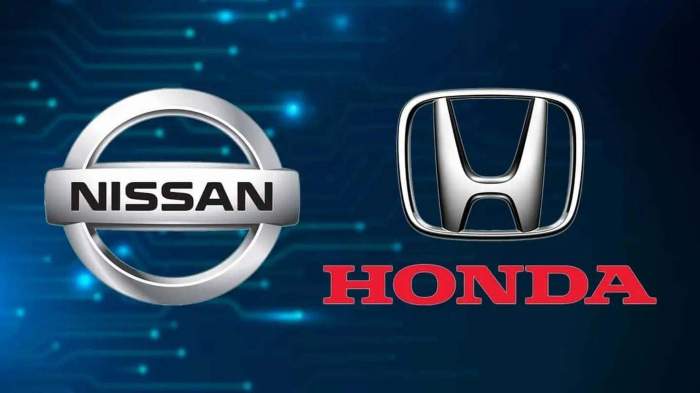Japanese automakers Nissan and Honda have officially entered discussions about a potential merger that could establish them as the world’s third-largest automaker by sales.
Gatekeepers News reports that in a press conference, Honda CEO Toshihiro Mibe emphasized the necessity for the companies to achieve greater scale to enhance their competitiveness, particularly in the rapidly evolving sectors of electric vehicles (EVs) and intelligent driving technologies.
Mibe highlighted that a business integration would create advantages that could not be realised under their current collaboration model.
The proposed merger aims to pool resources and expertise while fostering economies of scale and synergies, all while maintaining the distinct identities of both brands.
Under the plan, a new holding company would be established as the parent entity for both Honda and Nissan, which would be publicly listed on the Tokyo Stock Exchange. Honda would appoint the majority of the new organization’s board members.
Financially, this merger has the potential to generate substantial revenues, estimated at around 30 trillion yen (approximately $191.4 billion) and over 3 trillion yen in operating profit. For context, Honda reported an operating profit of 1.382 trillion yen for the fiscal year ending March 2024, while Nissan’s operating profit was 568.7 billion yen.
Together, the companies could have a combined market valuation approaching $54 billion, with Honda’s market capitalization constituting a significant share.
The discussions are scheduled to wrap up by June 2025, with Mibe indicating that, if approved, the integration will be a mid to long-term project, unlikely to yield noticeable results before 2030.
Nissan’s strategic alliance partner, Mitsubishi, has also been invited to join the newly formed entity, with a decision expected by January 2025.
Both Nissan and Honda are currently facing intense competition in the global EV market, notably from Tesla and China’s BYD, which has driven the need for consolidation in the auto industry due to the high costs associated with transitioning to electric vehicles.
As it stands, Japan’s Toyota holds the title of the largest automaker by sales, followed by Germany’s Volkswagen. Should the merger proceed, Nissan and Honda would surpass South Korea’s Hyundai, leading to a notable shift in the global automotive landscape.
The news of the merger discussions first surfaced in the Nikkei newspaper on December 17, leading to a significant spike in Nissan’s stock value.
Analysts have pointed out that this potential consolidation may stem from Nissan’s recent financial struggles and its efforts to restructure its long-term partnership with Renault.
In their latest quarterly reports, Nissan announced plans to reduce its workforce by 9,000 jobs and decrease global production capacity by 20%. Mibe also acknowledged that some Honda shareholders might view the merger as prioritising Nissan’s interests; however, he clarified that this initiative is predicated upon Nissan’s successful recovery.
Nissan CEO Makoto Uchida assured that discussions surrounding the merger do not indicate a cessation of Nissan’s turnaround efforts. Instead, he emphasized the importance of partnerships in ensuring future growth and competitiveness.







